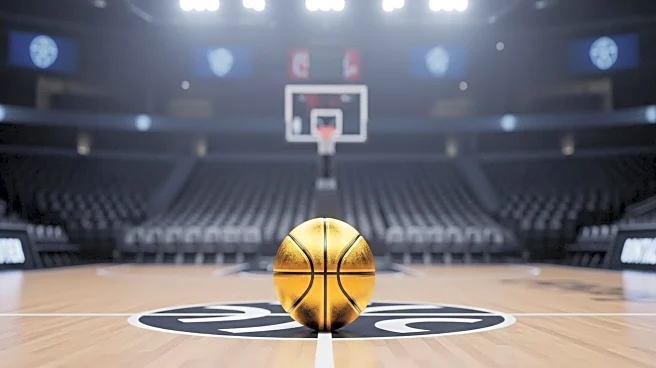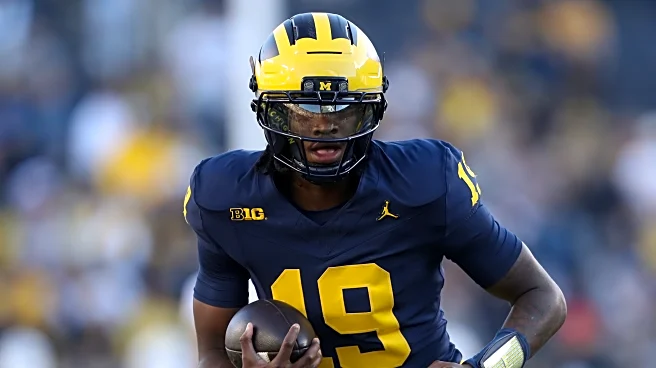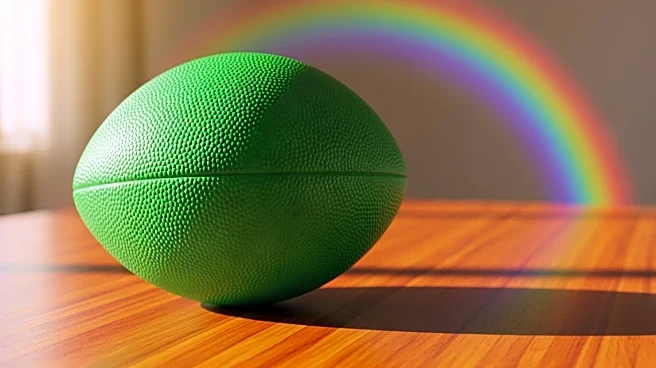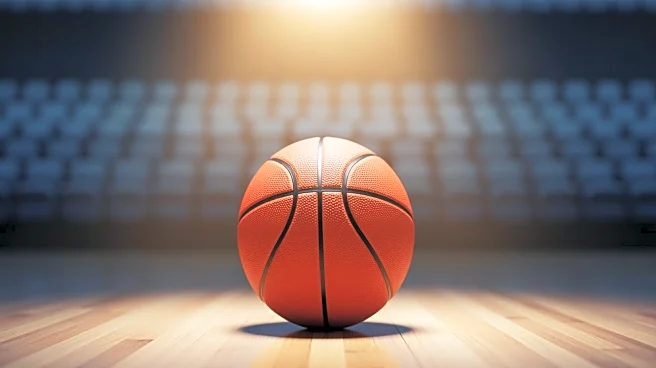What's Happening?
Caitlin Clark, a standout player for the Indiana Fever, was reportedly offered a $15 million contract by the BIG3 league before her rookie season in the WNBA. This offer, confirmed by BIG3 co-owner Ice Cube, was made while Clark was still in college at Iowa. The BIG3, a domestic league, operates during the WNBA's regular season, raising questions about whether Clark could have participated in both leagues simultaneously. Despite the lucrative offer, Clark chose to play in the WNBA, where players often sign overseas deals in the offseason due to lower pay structures. Clark's impact on the WNBA has been significant, with her estimated endorsement earnings reaching $11 million in 2024.
Why It's Important?
The offer from BIG3 highlights the disparity in pay between the WNBA and other basketball leagues, underscoring ongoing discussions about athlete compensation in women's sports. Clark's decision to remain in the WNBA despite the BIG3's offer reflects the challenges players face in balancing financial opportunities with league commitments. Her substantial endorsement earnings indicate her market value and influence, which could drive future changes in WNBA salary structures. The situation also emphasizes the potential for collaboration between leagues, as Ice Cube expressed interest in working with the WNBA and NBA, suggesting a shift towards more integrated sports partnerships.
What's Next?
The BIG3's offer to Clark may prompt further discussions about player compensation and league collaboration. As Clark continues to excel in the WNBA, her influence could lead to increased pressure on the league to improve pay structures and explore partnerships with other leagues. Stakeholders in women's sports may advocate for more equitable compensation and opportunities, potentially leading to policy changes within the WNBA. The situation could also inspire other players to seek similar offers, driving competition between leagues for top talent.
Beyond the Headlines
Clark's situation raises broader questions about the valuation of athletes in women's sports and the economic dynamics at play. The disparity between her WNBA salary and her endorsement earnings highlights the need for a reevaluation of how female athletes are compensated. This could lead to a cultural shift in how women's sports are perceived and valued, potentially influencing sponsorship deals and media coverage. The potential collaboration between leagues could also foster a more inclusive sports environment, encouraging diversity and innovation in athlete management.










